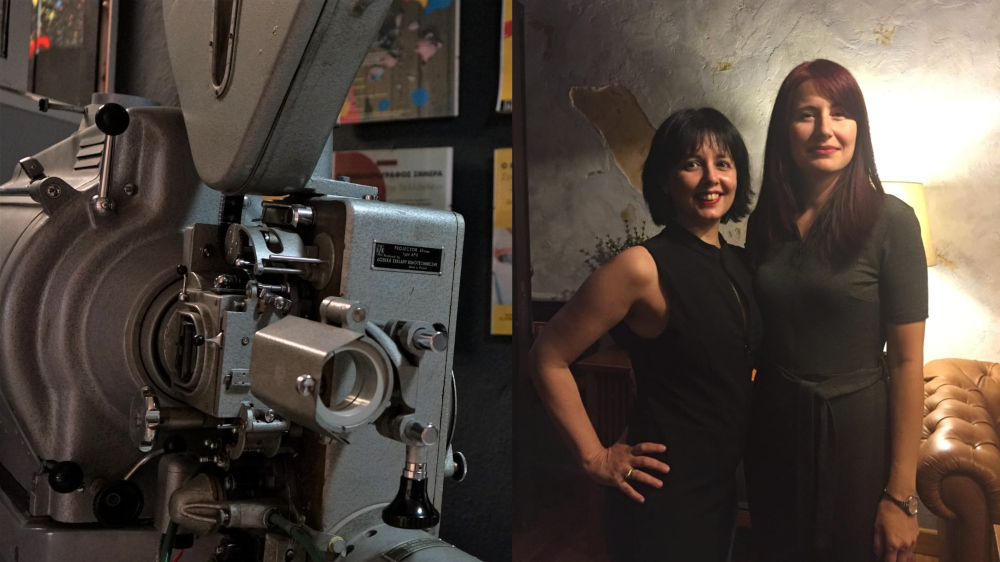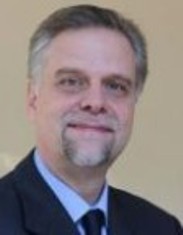The web portal Study in Greece is campaigning for the promotion and international visibility of Greek Universities and the comparative educational advantages of our country. In particular, the campaign focuses on the foreign language study programmes that Greek Universities offer to Greek and international students. The initiative is supported by the General Secretariat of Higher Education of the Ministry of Education and Religious Affairs and the General Secretariat for Greeks Abroad and Public Diplomacy of the Ministry for Foreign Affairs. In this context, a number of educational programmes and actions are presented in detail on a regular basis, such as undergraduate and postgraduate programmes, summer schools etc, to inform international students about the many foreign language options offered by Greek Universities.
Study in Greece interviewed Associate Professor Betty Kaklamanidou, Vice-Chair of the MA Programme in Film and Television Studies offered by the School of Film at the Aristotle University of Thessaloniki (AUTH), on the programme’s profile and its appeal to international students.
The MA programme was founded in 2018 by Betty Kaklamanidou and Eleftheria Thanouli, faculty members of the School of Film at Aristotle University. Professor Thanouli is the Chair of the Programme and Associate Professor Kaklamanidu is the Vice-Chair. The five-member Committee of the Programme consists of the Chair, the Vice-Chair, Professor Dimitris Theodoropoulos, Associate Professor Ioannis Kolaxizis and Associate Professor Panayiotis Iosifelis, all faculty members of the School of Film at Aristotle University.
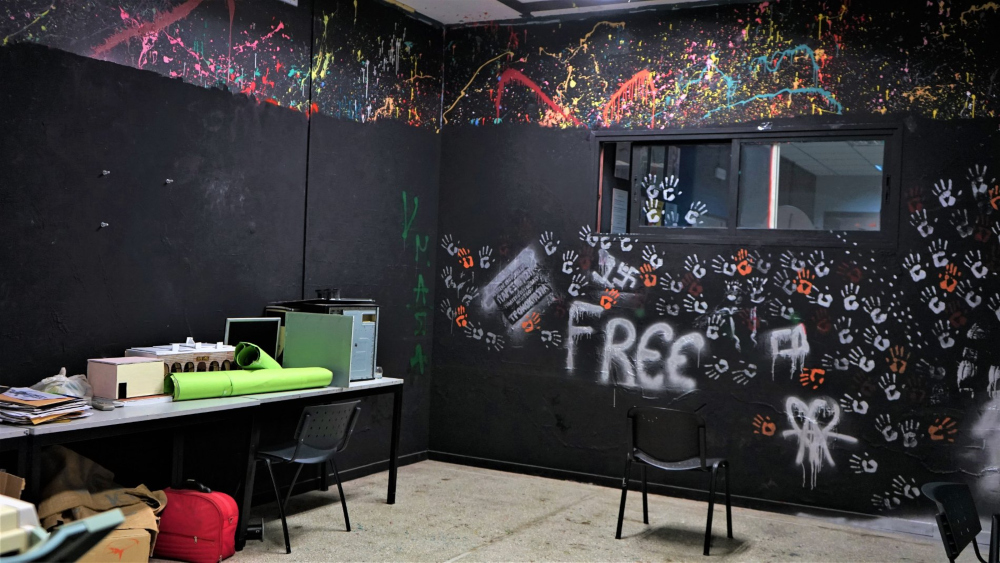 Betty Kaklamanidou is a Fulbright scholar and Associate Professor in Film & Television History & Theory at the School of Film at Aristotle University of Thessaloniki. She is the author of Easy A: The End of the High-School Teen Comedy? (2018), The ‘Disguised’ Political Film in Contemporary Hollywood (2016), Genre, Gender and the Effects of Neoliberalism (2013) and two books in Greek on adaptation theory and the history of the Hollywood rom com. Betty is also the editor of New Approaches to Contemporary Adaptation (2020) and co-editor of Contemporary European Cinema: Crisis Narratives and Narratives in Crisis (2018), Politics and Politicians in Contemporary U.S. Television (2016), The Millennials on Film and Television (2014), HBO’s “Girls” (2014), and The 21st Century Superhero (2010). Betty’s articles have appeared in Television & New Media, Literature/Film Quarterly, Celebrity Studies and The Journal of Popular Romance Studies.
Betty Kaklamanidou is a Fulbright scholar and Associate Professor in Film & Television History & Theory at the School of Film at Aristotle University of Thessaloniki. She is the author of Easy A: The End of the High-School Teen Comedy? (2018), The ‘Disguised’ Political Film in Contemporary Hollywood (2016), Genre, Gender and the Effects of Neoliberalism (2013) and two books in Greek on adaptation theory and the history of the Hollywood rom com. Betty is also the editor of New Approaches to Contemporary Adaptation (2020) and co-editor of Contemporary European Cinema: Crisis Narratives and Narratives in Crisis (2018), Politics and Politicians in Contemporary U.S. Television (2016), The Millennials on Film and Television (2014), HBO’s “Girls” (2014), and The 21st Century Superhero (2010). Betty’s articles have appeared in Television & New Media, Literature/Film Quarterly, Celebrity Studies and The Journal of Popular Romance Studies.
Please, tell us what the MA in Film and Television Studies is all about — its philosophy, its aims and directions.
The English-speaking MA in Film and Television Studies offered by the School of Film at the Aristotle University of Thessaloniki is an intensive three-semester programme taught by our faculty and a stellar lineup of world-renowned scholars. The programme is designed to cover a wide array of topics in film and television studies, including classical and contemporary theories of cinema, digital ontology and new media, history on cinema, politics in film and television, the Holocaust in film and television, the history of television, television and film genres, contemporary filmmaking, gender, celebrity and stardom. We place a special emphasis on issues of research and methodology, cultivating advanced skills and encouraging innovative approaches to the shifting boundaries between film and television. On completion of this MA programme, our students will have acquired a firm grounding in the theoretical, political, industrial, historical and aesthetic dimensions of film and television through a range of academic perspectives.
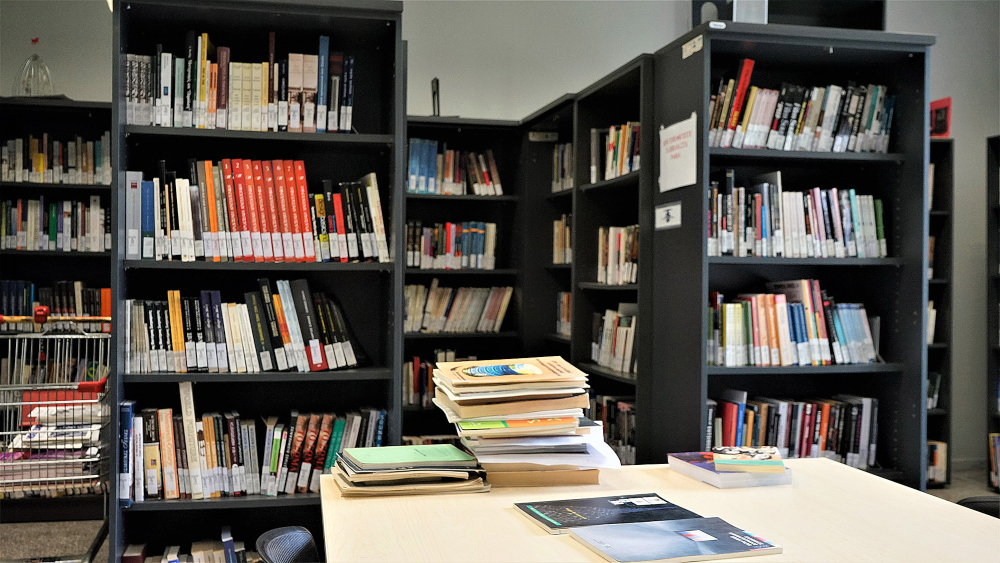 Given the fact that the programme is entirely taught in English, how attractive it is for foreign students? Please, tell us about the benefits and prospects offered to foreign students.
Given the fact that the programme is entirely taught in English, how attractive it is for foreign students? Please, tell us about the benefits and prospects offered to foreign students.
During our two years of operation, we’ve had students from different countries (from Italy to the United States, Australia and Nigeria). Our foreign students have the chance to immerse themselves into our fascinating Greek culture as well as get a quality education.
Tell us about the current art projects you are working on.
Our programme is strictly theoretical. So, our students prepare their thesis based on the highest standards, although we do have one optional course on production and filmmaking.
What kind of experiential learning opportunities does the programme offer — internships, summer schools, research opportunities?
Since this is a new programme, we are not yet connected to a wide network. However, our students have the chance to meet a vast array of people at the festivals Thessaloniki organises twice annually. Also, they can connect with other universities via our distinguished guests. We are currently in talks with Fulbright Foundation and have received a scholarship for Greek students through the J.F. Costopoulos Foundation.
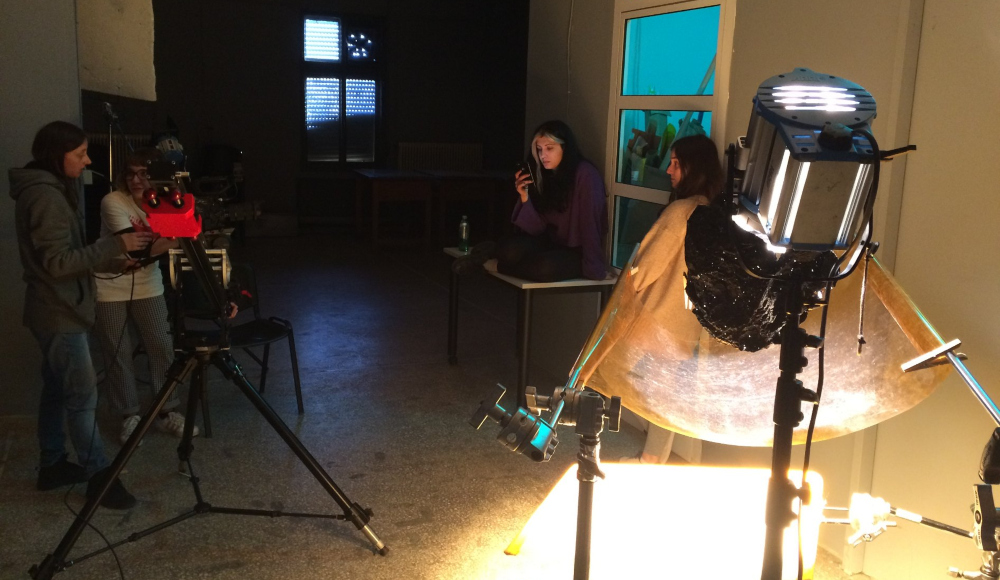 Tell us a few things about the Aristotle University of Thessaloniki – its history, its departments, its scientific tradition and its effort to adapt to the rapidly changing international academic environment.
Tell us a few things about the Aristotle University of Thessaloniki – its history, its departments, its scientific tradition and its effort to adapt to the rapidly changing international academic environment.
Eleftherios Venizelos was the first politician to start efforts to found a university in Thessaloniki at a time when Northern Greece had just been liberated and when reinforcing the “New Territories,” as the newly liberated areas were then called, emerged as a national need. Plans provided also for founding a university in Smyrna. However, the Asia Minor disaster thwarted these plans. It was due to the initiative taken by the government of Alexandros Papanastasiou that the Aristotle University of Thessaloniki was founded in 1925. Due to social and political problems, the Aristotle University first opened its doors a year later, in 1926. In order to meet the needs and demands of the time, special emphasis was placed on the development of the humanities. Thus, the Faculty of Philosophy was the first to open its doors in 1926.
At first, it was housed in the “Allatini” building, which now hosts the Prefecture of Thessaloniki services. Soon, however, the location proved to be problematic and, in October 1927, the Faculty of Philosophy was transferred to a mansion in Ethnikis Amynis street, which previously housed the 2nd Military Hospital. The building was repaired and a third floor was added a little later. Today, it is the historic building of the university and houses part of the Faculty of Philosophy. The Faculty of Physics and Mathematics opened its doors in 1927. Much later, one of its schools, the School of Forestry, along with the School of Agriculture became part of the newly created Faculty of Agriculture and Forestry which opened its doors in 1937. The Faculty of Law and Economics opened its doors in 1928, whereas the Faculty of Medicine and the Faculty of Theology were founded later, in 1941. The School of Veterinary Medicine was founded in 1950, the Institute of Foreign Languages in 1951, the Faculty of Engineering in 1955, and the School of Dentistry in 1959 as part of the Faculty of Medicine (it acquired its present status as an independent School in 1971).
In 1982, Law no. 1268 providing for the structure and operation of Greek Higher Educational Institutes brought about a complete restructuring of the Aristotle University of Thessaloniki, since it promoted the school as the basic academic unit, a restructuring of faculties and the organisation of schools into new faculties: the Faculty of Theology, the Faculty of Philosophy, the Faculty of Sciences, the Faculty of Law and Economics, the Faculty of Geotechnical Sciences, the Faculty of Health Sciences, and the Faculty of Engineering. The Faculty of Education was founded in 1983, the Faculty of Fine Arts in 1984, the independent school of Physical Education and Sports Sciences in 1983 and the independent School of Journalism and Mass Media in 1991. The School of Education in Florina was founded in 1993 and is now part of the University of Western Macedonia.
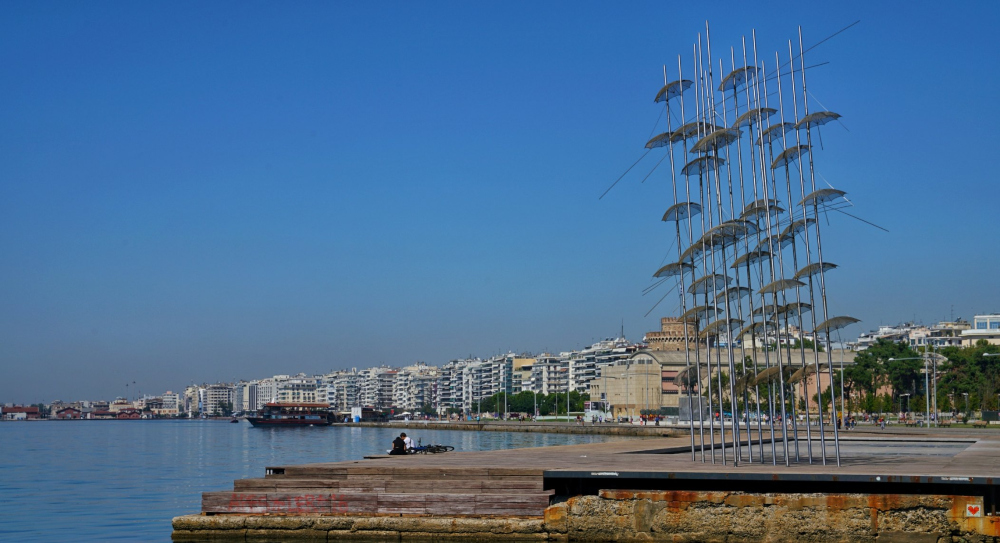 New schools were added in the already existing faculties, such as the School of Political Sciences in the Faculty of Law, Economics and Political Sciences, the School of Psychology in the Faculty of Philosophy, and the School of Informatics in the Faculty of Sciences. Among the newer schools are the following independent schools: the School of Energy Resources Management Engineering in Kozani (1999), the School of Balkan Studies (1999) and the School of Education (1993) in Florina, which are part of the University of Western Macedonia as of 1st January, 2004 (Senate meeting 2753/28-8-2003). Two new schools were founded in 2004: the School of Film Studies, part of the Faculty of Fine Arts, and the School of Urban-Regional Planning and Development Engineering (in Veroia), part of the Faculty of Engineering.
New schools were added in the already existing faculties, such as the School of Political Sciences in the Faculty of Law, Economics and Political Sciences, the School of Psychology in the Faculty of Philosophy, and the School of Informatics in the Faculty of Sciences. Among the newer schools are the following independent schools: the School of Energy Resources Management Engineering in Kozani (1999), the School of Balkan Studies (1999) and the School of Education (1993) in Florina, which are part of the University of Western Macedonia as of 1st January, 2004 (Senate meeting 2753/28-8-2003). Two new schools were founded in 2004: the School of Film Studies, part of the Faculty of Fine Arts, and the School of Urban-Regional Planning and Development Engineering (in Veroia), part of the Faculty of Engineering.
It needs to be noted that the Senate has decided to abolish the Faculty of Health Sciences and the Faculty of Geotechnical Sciences, and organise their schools into single-school faculties. Only the School of Pharmacy has retained its status as an independent school. The Aristotle University of Thessaloniki performs a great deal of research in a variety of scientific fields. It is in constant and close cooperation with universities, organisations and research centres both in Greece and abroad. The large number of its faculties and its approximately 250 laboratories enable scientists of the Aristotle University of Thessaloniki to carry out a variety of research projects with great success. During the past 12 years, 4500 research programmes were undertaken and realised with the participation of more than 10000 members of the academic community and several external collaborators.
Taking into account that Thessaloniki is world renowned for the Thessaloniki International Film Festival, one of the oldest and leading festivals in Southeast Europe, could we argue that the city does have the infrastructure needed to become an international destination in this field?
Again, I should stress that our MA programme is theoretically oriented. Therefore, our graduates will be ready for a different career in academia, cultural institutions, film festivals, consulting in film and television, etc.
Ν.Μ. (Intro image: Betty Kaklamanidou [left], and Eleftheria Thanouli [right], co-founders of the MA programme)

